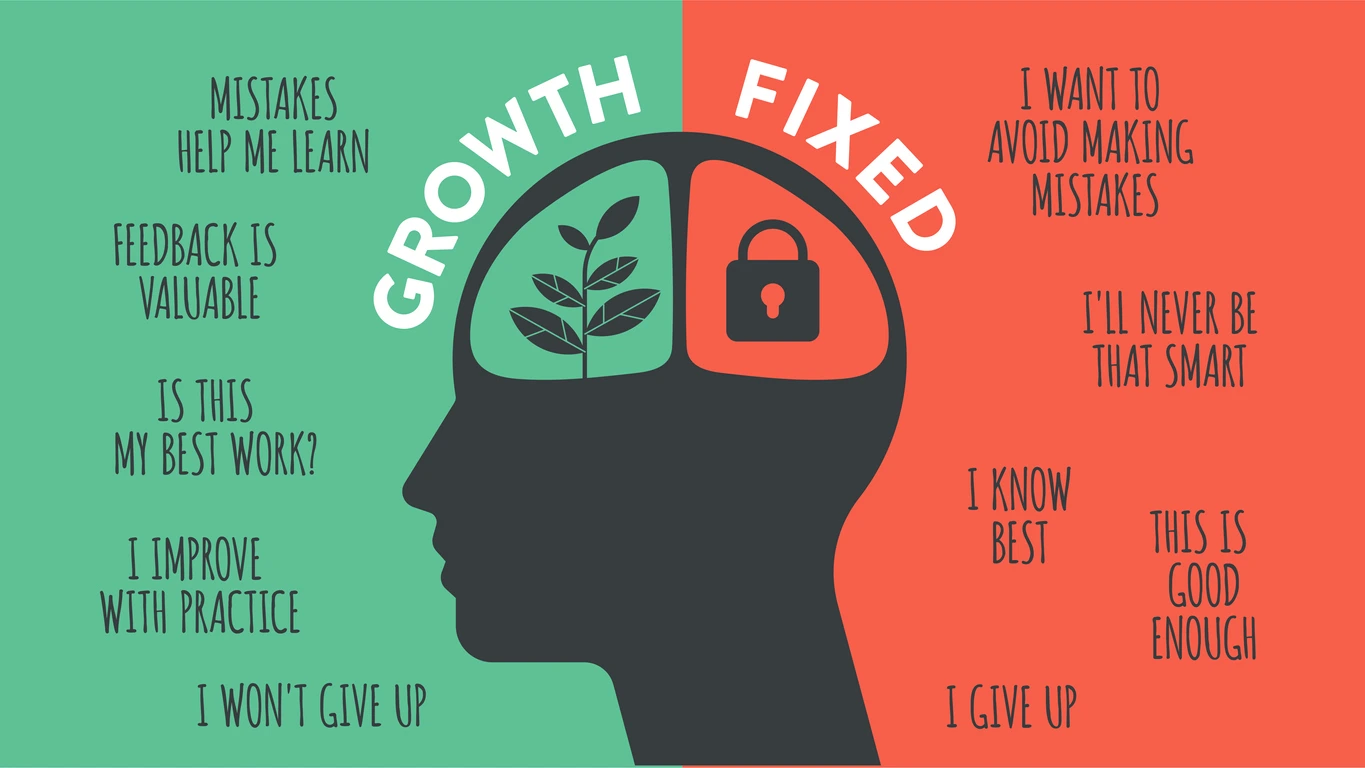Scholars find joy in their ideas gaining traction and making a positive impact, but popularity can have drawbacks. In my research on the contrast between “growth” and “fixed” mindsets, I’ve observed that individuals embracing a belief in the potential development of their talents tend to outperform those with a fixed mindset. This mindset dynamic extends to organizational culture, with companies fostering a growth mindset experiencing more empowered and committed employees, as well as enhanced support for collaboration and innovation.
The term “growth mindset” has become a buzzword in corporate circles, even finding its way into mission statements. However, there are common misconceptions that need clarification:
- False Assumption of Already Having a Growth Mindset:
Some mistakenly believe they’ve always possessed a growth mindset, confusing it with qualities like flexibility or open-mindedness. In reality, everyone exists on a spectrum between fixed and growth mindsets, influenced by evolving experiences. Acknowledging this mixture is crucial for reaping the true benefits. - Misconception about Effort-Only Recognition:
A growth mindset is not solely about praising effort without considering outcomes. Whether in educational or organizational settings, results matter. It’s essential to reward not just effort but also emphasize learning, progress, and the processes leading to them—such as seeking help, trying new strategies, and leveraging setbacks for effective advancement. - Dependency on Mere Expression of a Growth Mindset:
Merely professing a growth mindset in mission statements is insufficient. For these values to be meaningful to employees, companies must implement policies that translate them into tangible and achievable goals. This includes endorsing appropriate risk-taking, rewarding lessons learned even from unsuccessful projects, fostering collaboration over internal competition, and demonstrating commitment to the growth of every team member through tangible development opportunities. - Acknowledge the power of choice.
Once you recognize the fixed mindset voice discouraging you from trying to shield yourself from failure, the decision lies in your hands. Will you succumb to this voice or choose a different path? - Respond with a growth-oriented voice.
Rather than yielding to the fixed mindset voice, counter it with a new perspective. Say things like, “I may not be certain of success, but attempting is worthwhile.” or “Total avoidance is the real failure, and there’s no dignity in that.” This shift in self-talk helps drown out the negative fixed mindset and fosters a more optimistic outlook. - Engage in deliberate practice.
Expose yourself to challenging situations to actively practice your newfound mindset. Educational environments, such as school, offer numerous opportunities to thrive amid setbacks and trials, providing an ideal starting point for cultivating a growth mindset. - Seek external support.
Developing a growth mindset is a collaborative effort; you can’t do it alone. Seek support from mentors, faculty, or peers who can offer encouragement and guidance during challenges. Surrounding yourself with positive perspectives from others will influence your own self-talk. - Release the need for external validation.
While external help is essential, shift your focus away from seeking approval from others. Comparisons, concerns about appearances, and hiding failures hinder the development of a growth mindset. Concentrate on personal growth and dismiss worries about how others perceive your progress, as chances are, they aren’t scrutinizing it. - Substitute “failing” with “learning.”
Reframe your perspective on failure by viewing it as a form of learning. Embracing failure as an opportunity for continuous learning and growth diminishes the fear associated with it, providing a clearer understanding of the essence of a growth mindset. - Implement growth-oriented actions.
Act upon the guidance provided by your newfound growth-oriented mindset. Success is not guaranteed every time, and that’s okay. Through consistent self-talk aligned with a growth mindset and proactive actions, you gradually cultivate the mindset of growth you aspire to achieve.
Even with a clear understanding of growth mindset principles, cultivating it is no walk in the park. A major challenge lies in the existence of personal triggers that activate our fixed mindset. When confronted with challenges, criticism, or comparisons that highlight our shortcomings, it’s natural to feel insecure or defensive, hindering our potential for growth. Additionally, the work environments we inhabit can be rife with fixed-mindset triggers, especially in companies that prioritize a talent-centric approach. In such settings, engaging in growth-mindset thinking and behaviors, such as sharing information, collaborating, innovating, seeking feedback, or admitting mistakes, becomes more challenging.
To consistently operate in a growth mindset, it’s imperative to identify and navigate these triggers. Many managers and executives have found value in recognizing when their fixed-mindset tendencies emerge, understanding the threats or defensiveness associated with them. More importantly, they’ve honed the skill of persuading this fixed-mindset “persona” to collaborate with them on the pursuit of challenging goals.
While it may be demanding, the effort invested by individuals and organizations in delving deeper into growth-mindset concepts and translating them into practical actions pays off. It provides a more profound understanding of identity, principles, and the desired path forward.

